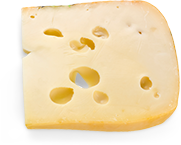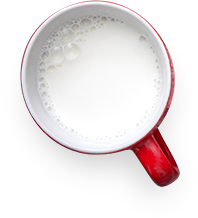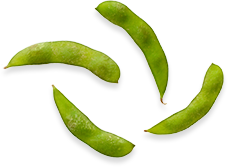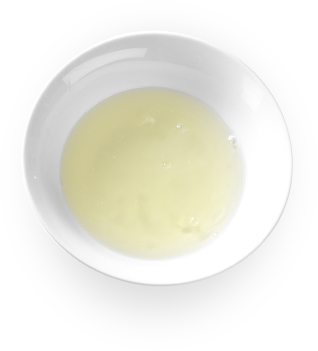
Egg white is the common name for the clear liquid (albumen) contained within an egg. Egg white consists of water and proteins (including albumins, mucoproteins and globulins). Unlike egg yolk, which is high in fat, egg white contains almost no fat and carbohydrate content is less than 1%. Egg whites contain just over 50% of the protein in the egg.
Scientific Value of Protein Types
Scientific Value of Protein Types
The following scientific scales illustrate the value of various protein types. It's important to understand what different types of protein can offer your body. Every person has different protein needs, and each protein type will play a crucial role in your overall health and diet. Click on one of the following to learn more about how food scientists measure the value of various proteins. [1]
Net Protein Utilization (NPU) is the ratio of amino acids converted to proteins compared to the ratio of amino acids supplied. In layman’s terms, it measures how well the body soaks up protein.
Net Protein Utilization
Close
Biological Value (BV) represents the proportion of protein ingested to what actually gets incorporated into the body. This scale also measures how readily this broken down protein can be used in protein synthesis in the cells of the body.
Net Protein Utilization
Close
Net Protein Utilization
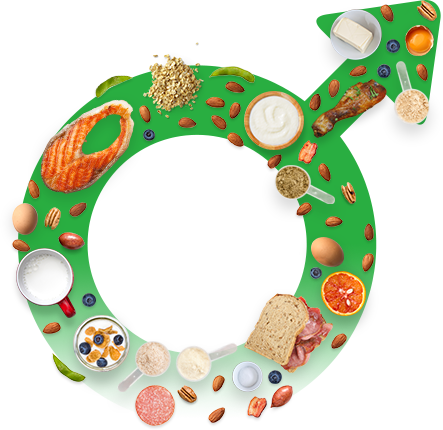 60g
60g
Men and Women Have Different Protein Needs
On average, women need around 46 grams of protein every day, whereas men need closer to 60 grams. [2]
What's My Protein Number?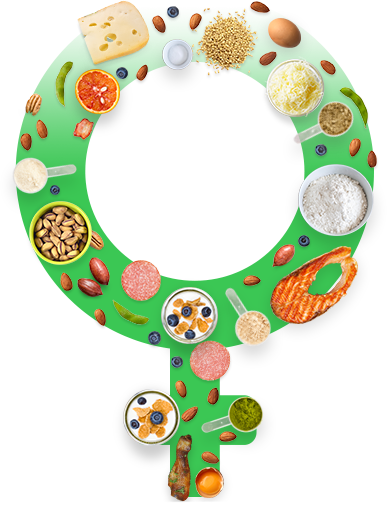 46g
46g
Athletes Have Significantly Higher Protein Needs
Depending on the level of activity, female athletes may need 80-115 grams of protein a day, whereas men may need upwards of 100-150 grams. [3]
Protein & Weight Loss
High Protein Diets Can Help You Drop Fat
In a study comparing weight loss diets, a high-protein approach produced 38% greater loss of body fat when compared to the carbohydrate-based group. [4]
...And Make You Feel Fuller Longer
The American Journal of Clinical Nutrition reports that protein can make you feel more full than other sources of nutrition. [5]
In a study comparing weight loss diets, a high-protein approach produced 38% greater loss of body fat when compared to the carbohydrate-based group. [4]
...And Make You Feel Fuller Longer
The American Journal of Clinical Nutrition reports that protein can make you feel more full than other sources of nutrition. [5]


Protein & Cravings
Protein Helps You Obsess a Little Less
In addition to making participants feel full throughout the day, a high-protein diet regimen in a recent study also produced 15% reduction in thoughts of food and 14% reduction in late night snacking desire among participants. [4]

Protein powders

Are Protein Powders a Healthy Alternative?
Powders and extracts can fulfill crucial post-workout protein needs. Despite all of the protein powder options available to us, obtaining protein through natural sources is highly recommended. In a recent study, The International Society Of Sports Nutrition states:[3]
"...individuals engaging in exercise [should] attempt to obtain their protein requirements through whole foods."- International Society of Sports Nutrition
Protein For Athletes
Depending on the level of activity, female athletes may need 80–115 grams of protein a day, whereas men may need upwards of 100–150 grams. [3]
The Right Amount of Protein at the Right Time Results in Big Muscle Gain
A recent study showed that ingesting four sets of 20 grams of protein starting immediately after a bout of resistance exercise and every three hours thereafter produced up to 48% higher rates of muscle growth that other protein intake methods and amounts. [6]
What's My Protein Number?Protein & Aging
We Begin Losing an Alarming Amount of Muscle Mass As Early As Our Late 40s to Early 50s
As we age, loss of muscle leaves us at risk for mobility loss, bone damage and joint disorders. Many studies have cited sarcopenia (muscle loss) as the leading cause for many ailments in the elderly population. [7]
As We Age, Protein and resistance Exercise Can Help Us Fight Natural Muscle Loss
Journal of the American College of Nutrition conducted a study in which frail, elderly nursing home patients were subjected to resistance combined with supplemental protein. On average, participants experienced strength increases of around 250% and significantly improved mobility. [8]
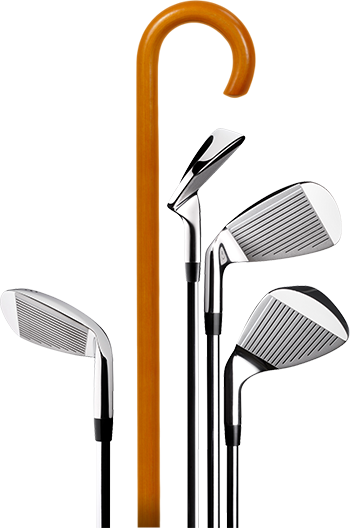
Cholesterol Concerns

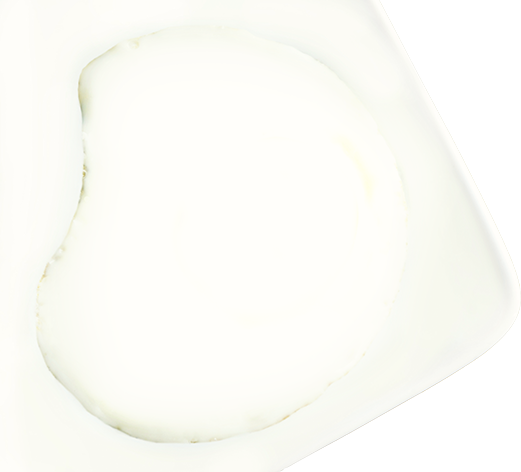
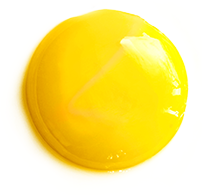
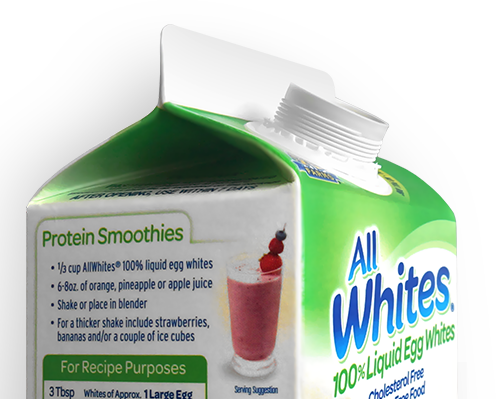
Shell Eggs and Cholesterol
An average egg has 186 mg of cholesterol, all of which is found in the yolk. That's more than half of the Mayo Clinic and FDA's recommended daily cholesterol intake.
Egg whites contain more than half of an egg's protein and virtually no fat or cholesterol. They also contain essential amino acids that allow your body to soak up protein faster. [9] [10]
If you like eggs but don't want the extra cholesterol, use only the egg whites. Egg whites contain no cholesterol.- Mayo Clinic
Sources
Sources
-
"Protein - Which Is Best?" Journal of Sports Science and Medicine, 2004 Jay R. Hoffman & Michael J. Falvo [1]
jssm.org -
"How Much Protein Do You Need?" WebMD, 2011 Cari Nierenberg [2]
webmd.com -
"Int'l Society Of Sports Nutrition Position Stand: Protein and Exercise." Journal Of The International Society Of Sports Nutrition, 2007 Bill Campbell [3]
www.ncbi.nlm.nih.gov -
"A Moderate-Protein Diet Produces Sustained Weight Loss and Long-Term Changes In Body Composition and Blood Lipids in Obese Adults." The Journal of Nutrition, 2008 Donald K. Layman [4]
jn.nutrition.org -
"Protein, Weight Management, and Satiety." The American Journal Of Clinical Nutrition, 2008 Paddon-Jones D, Westman E, Mattes RD, [5]
ncbi.nlm.nih.gov -
"Refining Dietary Protein Recommendations For The Athlete." The Journal of Physiology, 2013 Andrew M. Holwerda [6]
http://jp.physoc.org/ -
"Functional and Metabolic Consequences of Sarcopenia." The Journal of Physiology, 1997 Evans W. [7]
www.ncbi.nlm.nih.gov
-
"Protein Nutrition, Exercise and Aging." Sports Nutrition Workshop, 2004 Evans WJ. [8]
www.ncbi.nlm.nih.gov/ -
"Are Chicken Eggs Good Or Bad For My Cholesterol?" Mayo Clinic, 2012 - Thomas Behrenbeck, M.D., Ph.D. [9]
www.mayoclinic.org -
"Trans Fat Now Listed With Saturated Fat and Cholesterol." US Food and Drug Administration, 2014 [10]
fda.gov -
"Leucine Conent of Dietary Proteins is a Determinant of Postprandial Skeletal Muscle Protein Synthesis in Adult Rats." NCBI, 2012 Layne E. Norton
nutritionandmetabolism.com -
"How Much Protein Do You need?" Nutrition Express, 2014
nutritionexpress.com/ -
"The Effects Of Consuming Frequent, Higher Protein Meals on Appetite and Satiety During Weight Loss in Overweight / Obese Men." Wiley Online Library, 2012 - Leidy HJ
www.ncbi.nlm.nih.gov

